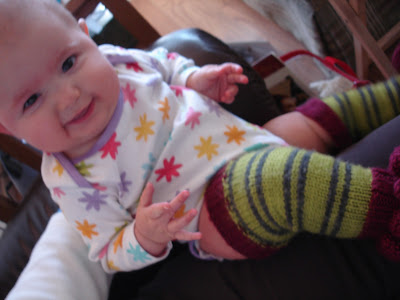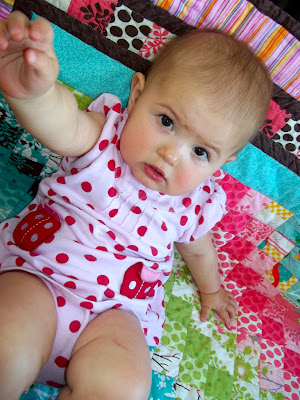So, after thinking about it a lot and reading the comments on my blog, here are my thoughts about art and pain. Many thanks to the people who gave me feedback, which really helped shape and clarify my own thoughts. I think it comes down to one particular theme for me, with a couple of sub-ideas feeding into it.
I think that art is a form of redemption for pain. Not, perhaps, in every sense of the word, but in the senses given to me based on the definition of "redeem" according to Dictionary.com: "to buy back" and "to recover." Dictionary.com, under "redemption," offers a definition from a Bible dictionary: "the purchase back of something that had been lost, the payment of a ransom." (Also, included in my idea is the Biblical sense that something is better and restored once it has been redeemed.)
I think that's what art does, at least when it comes to pain. Here's what I mean:
Art is typically aesthetically pleasing, or if not, is evocative of some emotion in a way that makes a statement. Through colors, shapes, words, pictures, or music, art constructs order and/or beauty and/or meaning. But even apart from the meaning, art is typically beautiful in and of itself, which in many cases is part of what makes it art. I remember being in a class once and listening to a poem written in a language I did not know. Listening to the poem stirred something in me because of the sounds and rhythms put together by the poet. I remember wondering that I could have an emotional reaction to something when I didn't even know what it was saying. But that's the case with many pieces of art. Somehow, because of the beauty and order they create or the emotion that they isolate and evoke, they become an object of value in and of themselves.
So, when an artist takes a painful emotion or experience and puts it into a piece of art, they are taking emotional wounds and redeeming them. The hurt, the pain, seems pointless; the effort of the artist pays the ransom and buys back the hurt, turning into something that has value in and of itself. In the case of extremely hurtful experiences, the beauty or value of the art may not be even close to what was paid in suffering. But something good has come out of something bad, redeeming it even if just a bit.
As I was coming to this conclusion, I questioned whether aesthetic objects alone are worth human suffering. After all, if you've been through something terrible, how could art ever begin to redeem your experience? I think there are two reasons beauty and order alone are worth it.
1) Soul scars (this term/idea was coined by my multi-talented friend Katie and I'm stealing it):
People make art out of suffering because suffering shapes them. When people are betrayed, when natural disasters wipe out someone's home or town, when wars result in death, it seems that there is no good that can come out of such a thing.
Yet, without suffering, we don't become the people we are. There have been many times in my life where I have heard people, both religious and nonreligious, talk about a difficult time in their life. Sometimes they say they wish it had never happened, but they often say that they wouldn't be the people they are without the experience. Without the suffering, they wouldn't be as patient or compassionate or wise or loving or even just experienced. Most Christians I know agree that the worst times in their lives are the times when they are closest to God and feel His love the most, and that pain is what gets our spiritual attention.
And when people don't have any struggles, they tend to become shallow. I know that in my own life, difficult times give me a broader, better perspective. And so I think art reminds us of those difficult times that made us who we are. It reminds us that being cut off in traffic is not the end of the world, that there are worse things than those we've been worry about, that it's better to be grateful for what you have than to pine for what you don't have. Physical wounds leave scars; emotional and spiritual wounds also need scars so we can remember how we became who we are. Art redeems the experience by creating a soul scar for us.
2) Community:
Art shows us we are not alone because it speaks to our souls. When you see a painting that moves you, or when you discuss the meaning of a novel with a good friend, or hear a piece of music that speaks to the despair you feel where a rational discussion never will, it gives you the sense that you are understood, comprehended. While you may not feel like the artist, writer, or composer is speaking to you directly, I think we've all seen, read, or heard something and had an inner reaction of "Yes! That's It!" It, referring to what we are feeling but cannot express. Knowing that someone else has created It helps us feel less alone. And so when we've had a painful experience, art relating to that experience becomes a way of communicating with others who've been there. It's too painful for words, but art lets us know we aren't alone. Art redeems that experience by giving us a deeper way to experience community.
Anyway, those are my thoughts. I'd love to hear any feedback/additions/perspectives any of you have. :)
Aside: I do not want to ignore the idea of art as an expression of the artist and a way of working through the pain. My goal in thinking about this was to examine why art that is about pain appeals not just to the artist, but to the audience as well.


























